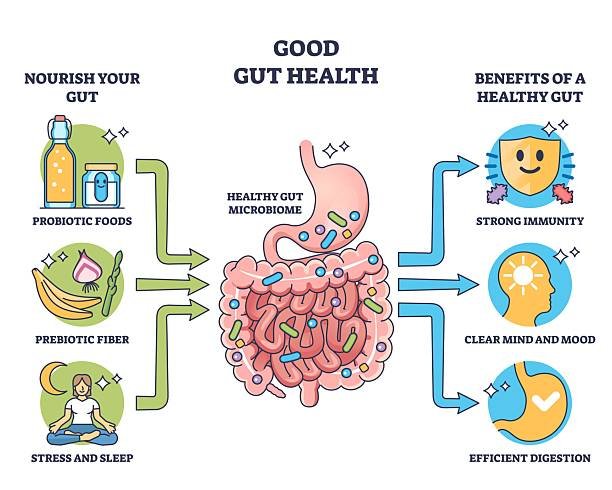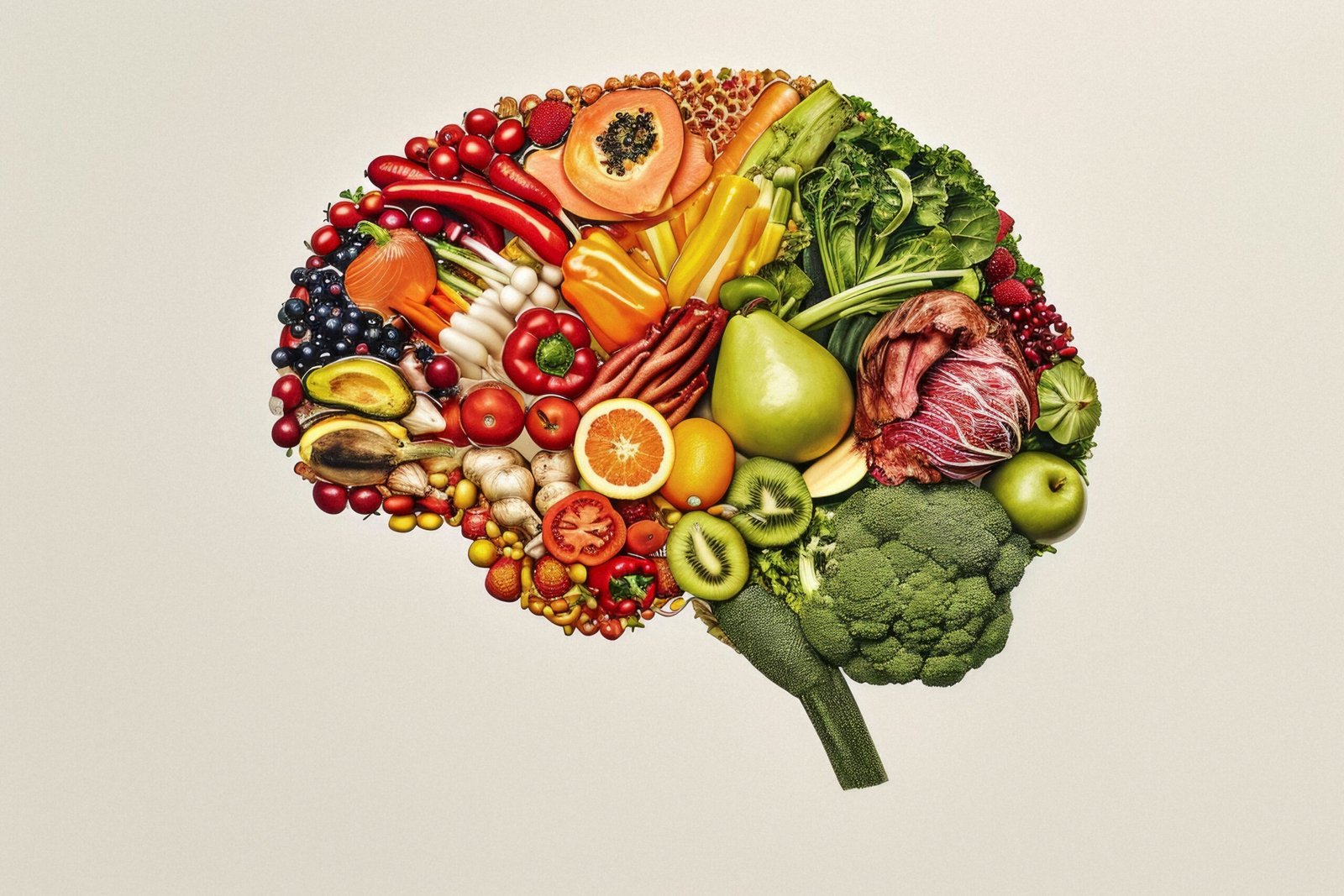As a nutritionist, I always try to remind my clients that it is scientifically proven that 70% of our immune cells are located in our gut, and our overall health closely depends on the condition of our microbiota and gut (The University of Manchester, 2023).
The gut is a central immune organ, and the gut lining is the first line of defence between the outside world and our internal systems.
A healthy, diverse microbiota is responsible for regulating the organism’s immunity by reducing inflammation through the production of short-chain fatty acids (SCFAs) such as butyrate, preventing overgrowth of pathogens, and it is also involved in immune responses to foods (intolerances) or pathogens (harmful bacteria) (The University of Manchester, 2023).
There is also a well-known direct link between our gut health and our brain performance, including mental health and even our emotional state. This is the so-called gut-brain axis, which many scientists are currently researching, and it is an incredible bidirectional link between your gut microbes and the central nervous system (Imperial College London, n.d.; UK Gut–Immune–Brain Axis Network+, 2025).
The gut microbes produce neurotransmitters such as dopamine, serotonin, and GABA hormones, with serotonin being the hormone of ‘happiness’ and GABA being known for its calming effect on anxiety and panic attacks. These are all crucial for mood regulation and are related to stress response systems within our organism (Imperial College London, n.d.).
Poor gut health is linked to lower stress resilience, irritability, and anxiety (UK Gut–Immune–Brain Axis Network+, 2025).
Nutrient Absorption
Vitamin and mineral deficiency can, and often is, caused by gut lining issues, which in turn could be caused by bad eating habits and not eating enough fibre.
Not enough fibre?
The reasons why we should take care of our gut health are many, but a big part of the solution always leads to fibre intake.
In the nutrition scientific field, certain types of dietary fibres (prebiotics), and some probiotics are considered ‘psychobiotics’.
These fibres feed the gut microbiota and promote the production of neuroactive compounds (like SCFAs, which we mentioned), which are involved in producing ‘good bacteria’ such as Faecalibacterium, Bifidobacterium, etc. They also support neurotransmitter production, like the ones we mentioned earlier – serotonin, GABA, etc.
The recommended fibre intake for adults is 30g, and not consuming enough fibre leads to impaired gut health. Recent statistics on fibre consumption (National Diet & Nutrition Survey (NDNS) 2019–2023 and other recent sources) suggest that only 7% of the adult population is meeting the fibre recommendation (UK Government, 2025; Food & Drink Federation, 2025). The gap between actual intake and recommendations is large across all age groups.
These statistics do make sense in the hectic times we live in. Not being able to cook and consume fibre 4–5 times a day is understandable, and this is why as a Nutritionist I highly approve of Fiihii’s frinks.
Fiihii’s fibre smoothies are a great addition to a balanced diet of a busy person, with one of these pouches a day contributing to 1/2 of your daily fibre intake, and two of the pouches containing 30g fibre and a long list of micronutrients.
It is vital to mention that higher fibre intake is correlated with many good health outcomes, and you can find references to world-leading research papers supporting the importance of prebiotics and gut health on Fiihii’s website.
Starting with two po
uches a day could have a significant impact on your gut health and gut reset, as well as remove a mental load from your shoulders, due to the fact that you will be definitely sure to meet your fibre recommendations even on a busy day.
Disclaimer
If you do struggle with severe symptoms from your gut, or you suspect a more complicated underlying health issue, please do not increase fibre rapidly before speaking to your GP, Registered Nutritionist, or Dietitian, as this could lead to unpleasant symptoms or worsening of existing medical conditions.
Yana Petrova
Whynutrition
References:
- Food & Drink Federation. (2025) New research shows millions of Brits are missing out on health benefits of fibre. Press release, 31 July.
- Imperial College London. (n.d.) Gut brain axis | Institute of Global Health Innovation.
- The University of Manchester. (2023) Wellcome Trust funds study of innate immune cells role in intestinal health and disease.
- UK Government. (2025) National Diet and Nutrition Survey 2019 to 2023: report. London: HMSO. Available at: https://www.gov.uk/government/statistics/national-diet-and-nutrition-survey-2019-to-2023/national-diet-and-nutrition-survey-2019-to-2023-report
- UK Gut–Immune–Brain Axis Network+. (2025) GIBA UK: Connecting microbiome, immune and brain health. Supported by Biotechnology and Biological Sciences Research Council (BBSRC).





